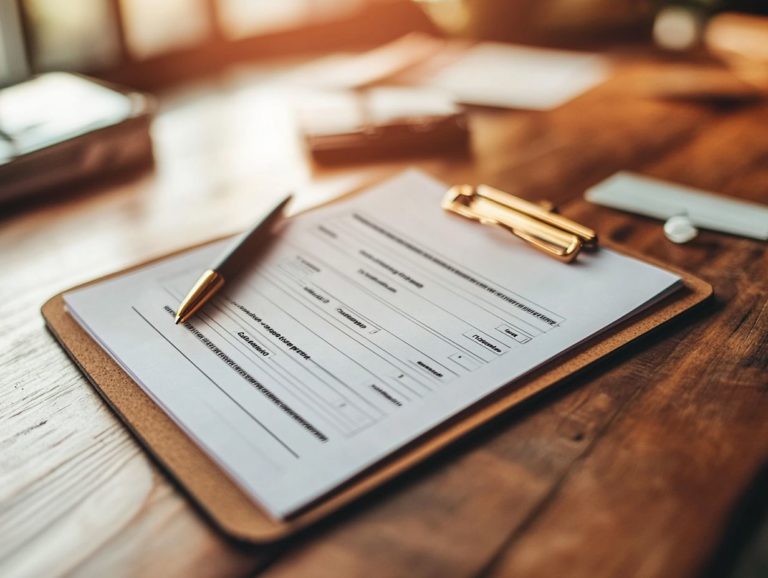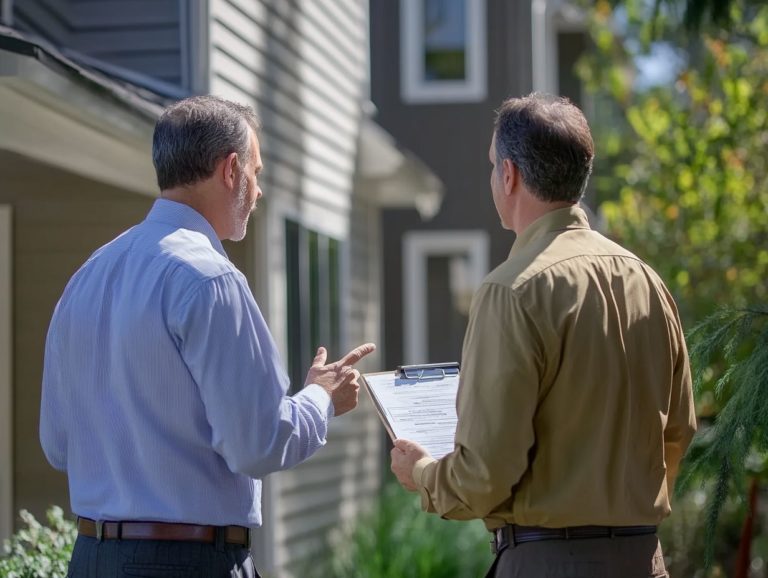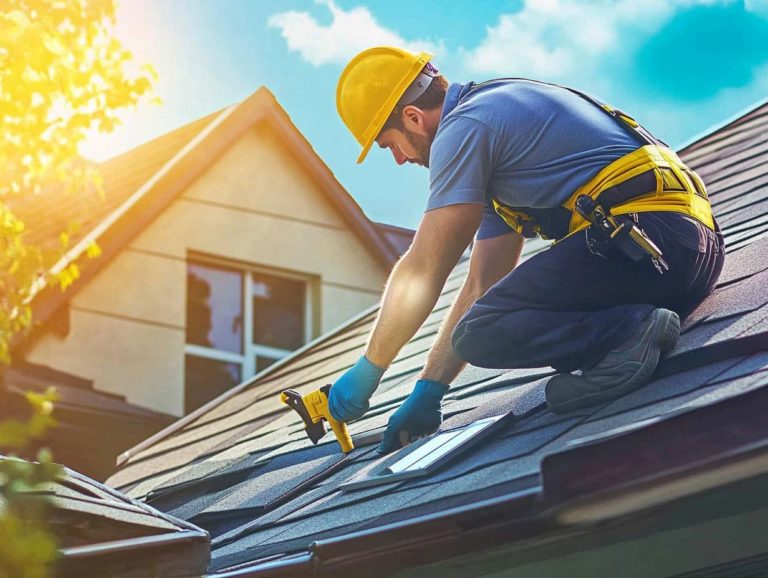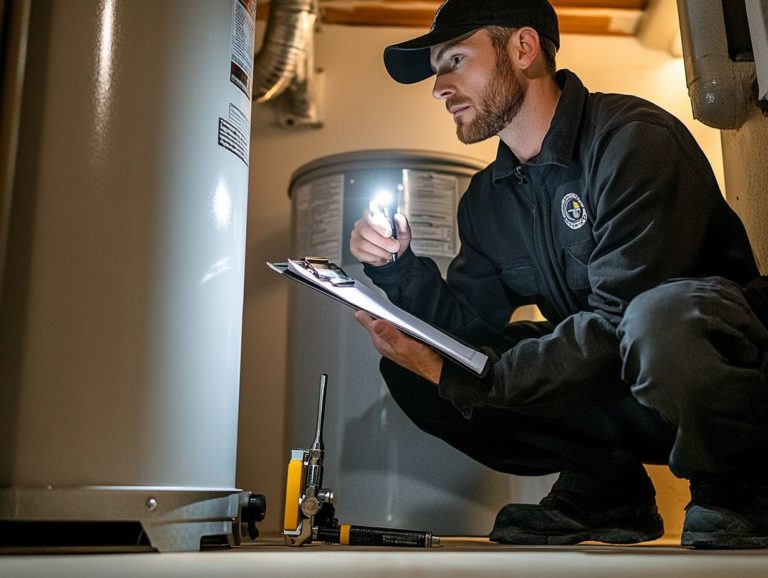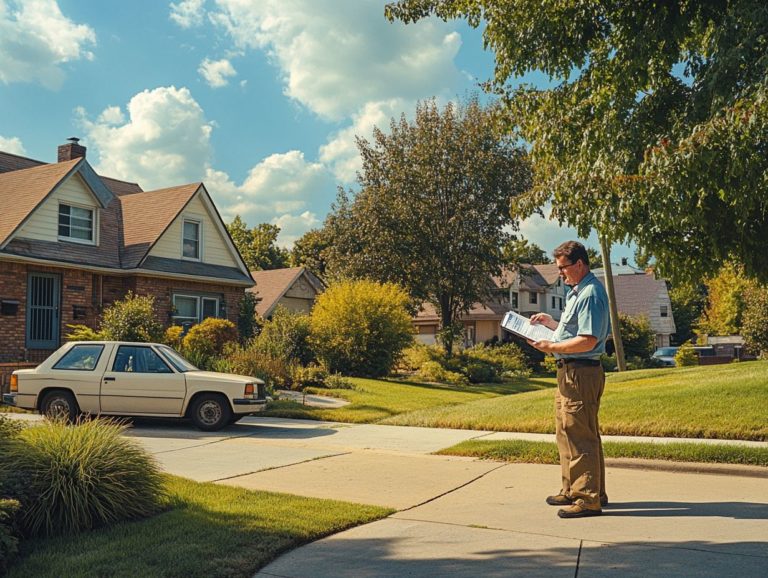Understanding the Home Inspection Process
When you’re navigating the buying or selling of a home, understanding the details of a home inspection is essential.
This article elucidates everything you need to know, from its purpose and significance to the optimal timing for scheduling one. You’ll discover what to expect during the inspection, the specific areas that are examined, and common issues that might come up.
You will also find valuable preparation tips and insights on how to interpret the inspection report, ensuring you re fully prepared for this pivotal step in the real estate journey.
Contents
- Key Takeaways:
- What is a Home Inspection?
- When to Schedule a Home Inspection
- What to Expect During a Home Inspection
- Areas Covered in a Home Inspection
- Common Issues Found in Home Inspections
- How to Prepare for a Home Inspection
- Interpreting the Home Inspection Report
- Final Thoughts and Recommendations
- Frequently Asked Questions about Home Inspections
- Frequently Asked Questions
Key Takeaways:
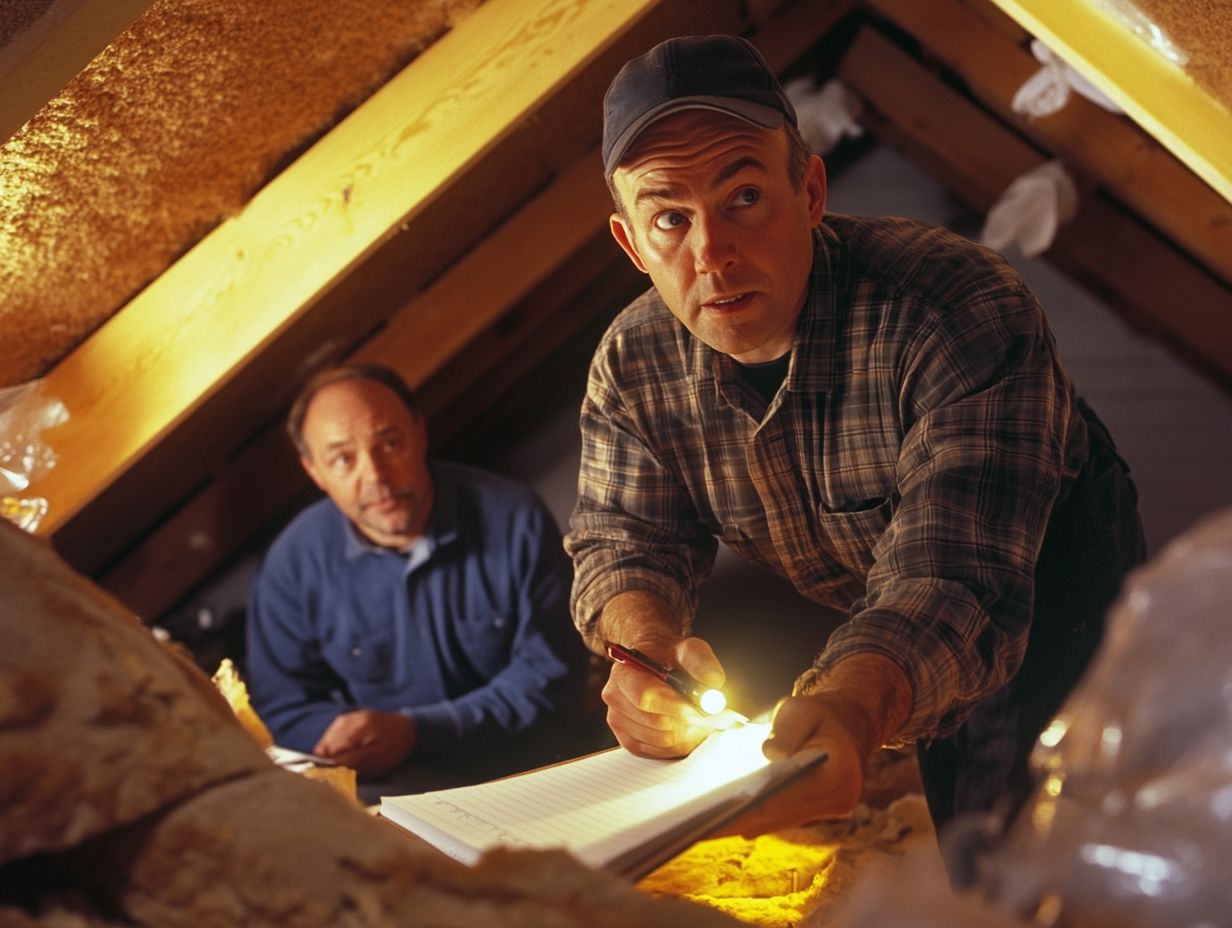
A home inspection checks a property’s condition closely. Scheduling a home inspection at the right time, depending on the type of property, can help ensure a smooth and successful process. For more information, understanding the home inspection timeline and being prepared for the inspection can help buyers make informed decisions about their potential investment.
What is a Home Inspection?
A home inspection is an in-depth evaluation of a property’s condition carried out by a qualified inspector, typically adhering to the standards established by the American Society of Home Inspectors (ASHI). Understanding the home inspection process for sellers is vital, as it offers you, as a buyer, the chance to identify significant issues that could impact the property’s value or safety.
It also outlines the seller’s responsibility to disclose pertinent information. Covering everything from structural concerns to the assessment of essential systems, including Heating, Ventilation, and Air Conditioning (HVAC), plumbing, and electrical, a home inspection ensures that both parties are well-informed before finalizing the sale.
When to Schedule a Home Inspection
Scheduling a home inspection is crucial for both buyers and sellers, as it can profoundly influence home buying eligibility and the negotiation strategy throughout the sale process.
Recognizing the optimal timing for a home inspection is essential whether you re a buyer looking to preempt costly repairs or a seller striving to fulfill your duties by showcasing a property in excellent condition.
What to Expect During a Home Inspection
During a home inspection, you can expect a careful check of different parts of the home, all guided by a detailed inspection checklist. This understanding of the home inspection process for buyers is designed to uncover serious issues and assess the home’s overall condition.
The inspector will thoroughly evaluate essential systems, such as plumbing, electrical, HVAC, and structural elements.
Following the inspection, you will receive a comprehensive report outlining their findings, which can significantly impact your future negotiations.
Areas Covered in a Home Inspection
A home inspection delves into the essential aspects of a property, meticulously examining both the interior and exterior components. It pays special attention to critical structural features, including the foundation and roof, as well as vital systems such as HVAC, plumbing, and electrical.
By grasping these areas, you enable yourself as a buyer to identify potential issues while ensuring that sellers fulfill their obligations by showcasing a well-maintained property.
Common Issues Found in Home Inspections
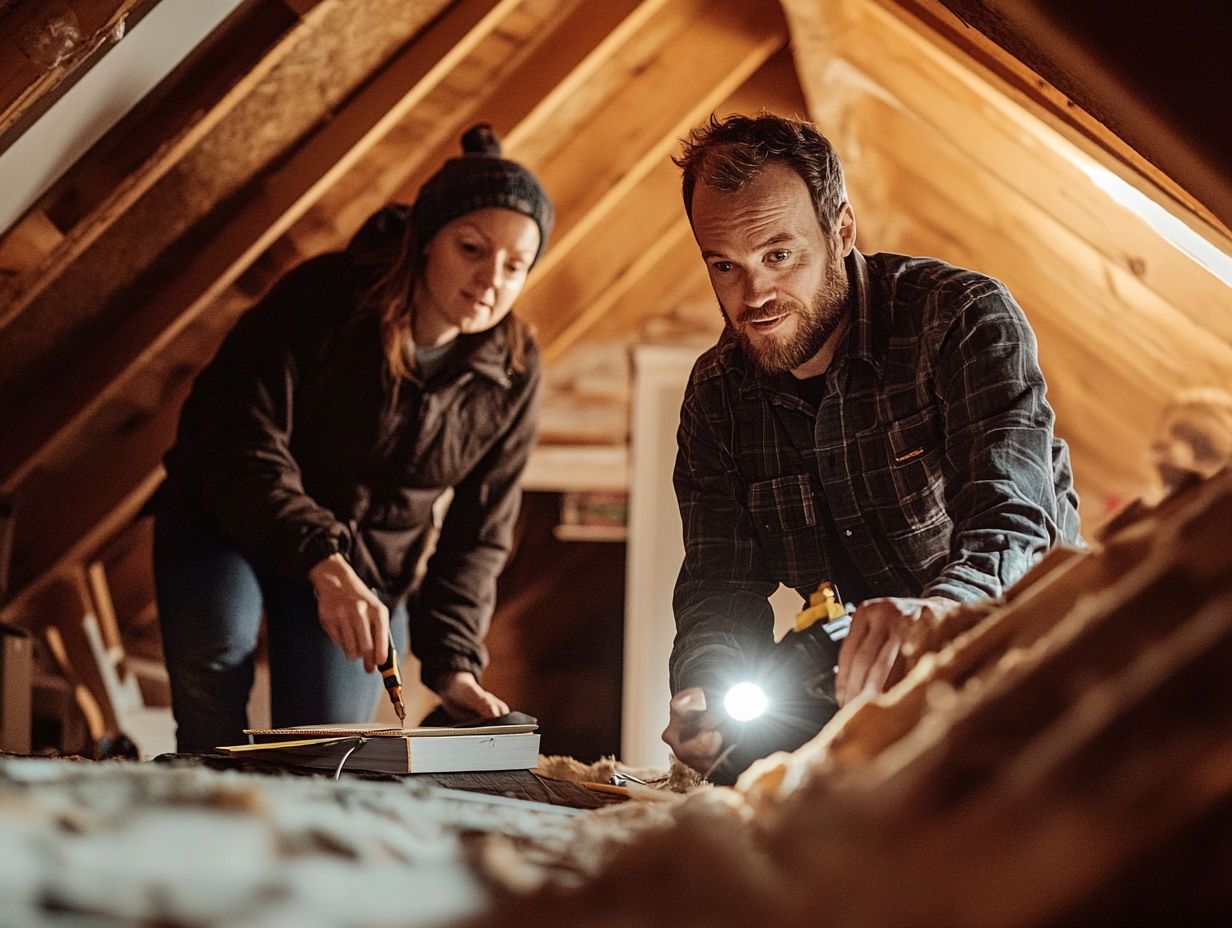
During home inspections, you may encounter issues from small repairs to serious problems that could affect safety and market value.
Don’t miss spotting potential problems, including water damage, radon, lead piping, termite infestations, and mold. These issues are critical for both buyers and sellers, as they can substantially influence negotiations and future repair decisions.
How to Prepare for a Home Inspection
Get ready for your home inspection with some smart strategies! Preparing for a home inspection requires a thoughtful approach to ensure a seamless and successful experience. It s essential to follow specific tips that facilitate the inspector s work while proactively addressing any known issues beforehand.
As a buyer, attending the inspection provides you with invaluable firsthand insights into the property’s condition. For sellers, utilizing a home inspection checklist can help you identify and address potential areas of concern, showcasing your commitment to transparency throughout the process.
Interpreting the Home Inspection Report
Interpreting the home inspection report is essential for you, whether you’re a buyer or a seller. This document is filled with detailed findings that can significantly influence your negotiation strategy and future costs tied to the property.
By understanding the report’s content, you can make informed decisions. Sellers can identify necessary follow-up costs to facilitate a smooth and successful transaction.
Why Hire a Professional Inspector?
Hiring a professional inspector provides invaluable expertise and a detailed inspection report. This ensures that potential issues are thoroughly identified, safeguarding your investment and enhancing the seller’s credibility.
Look for inspectors with certifications from respected home inspection groups like the American Society of Home Inspectors (ASHI). This assures a high standard of quality and reliability. When selecting an inspector, consider not just their credentials but also their experience in the field. Hands-on knowledge can reveal problems that might escape a quick glance.
Seek someone with a solid track record of inspections and a thorough understanding of local building codes and regulations. Engaging a certified professional boosts the reliability of the inspection and gives you the confidence that they are equipped with the latest technology and techniques.
Hiring a qualified inspector is a crucial step in your journey, leading to more informed decisions and peace of mind for everyone involved. Contact a certified home inspector today to get started!
Importance of Attending the Home Inspection
Attending the home inspection lets you gain valuable insights directly from the inspector. This enhances your decision-making process and ensures that sellers fulfill their obligation to disclose potential issues. For more information on this topic, understanding the importance of home inspections creates an opportunity for open dialogue among all parties involved.
You and the sellers can ask questions on the spot, clarifying any concerns or misconceptions that might arise. This transparency fosters trust and can lead to a smoother negotiation process.
When you understand the inspection results firsthand, you re better equipped to navigate discussions, which can potentially lead to concessions or adjustments in the purchase agreement.
This collaborative approach benefits everyone by emphasizing clear communication and a shared commitment to addressing any issues that may arise.
Follow-Up Actions After the Inspection
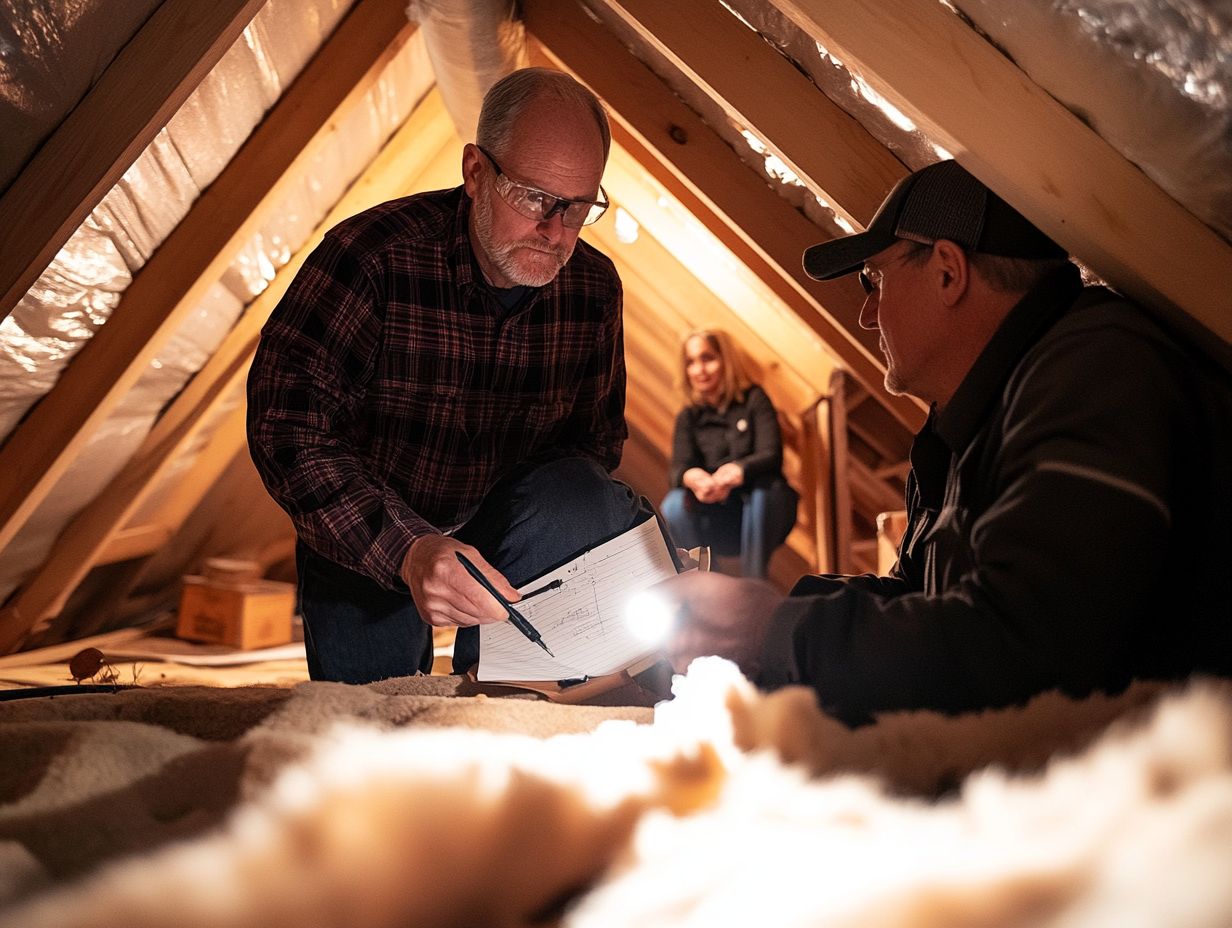
After your home inspection, think about the follow-up actions you may need to take. This includes assessing any potential costs associated with the identified issues and determining whether additional inspections are necessary to fully gauge the property’s condition.
These steps are significant in shaping your negotiation strategy with the sellers. Once you review the report, prioritize serious problems that present safety risks or require urgent repairs. These issues may justify requests for repairs or credits from the sellers.
Sellers should be prepared to either address these concerns before closing or consider renegotiating the terms. Maintaining open communication is vital; both parties should strive to find a middle ground that ensures the sale remains intact.
Exploring home warranties can provide you with peace of mind, covering potential future repairs after your purchase. It s also a good idea to seek further evaluations on complex repairs to better understand any issues you might face.
Final Thoughts and Recommendations
The home inspection process is a cornerstone of real estate transactions. It provides you with critical insights and ensures transparency from sellers, so it’s important to familiarize yourself with what to expect during the home inspection.
By prioritizing a thorough inspection, you can navigate the complexities of the home buying journey with confidence and clarity. Understanding the home inspection process timeline is crucial, as this assessment uncovers potential structural issues or necessary repairs, enabling you to negotiate terms that are fair and equitable.
For sellers, addressing concerns proactively before listing can pave the way for a smoother transaction and potentially attract higher offers. It is essential for everyone involved to maintain open lines of communication throughout this process. This ensures that any issues uncovered during the inspection are addressed promptly and effectively.
Viewing this as a collaborative opportunity rather than an obstacle allows you to make informed decisions that benefit all parties. Embracing the inspection process can lead to successful negotiations and cultivate a more positive real estate experience.
Frequently Asked Questions about Home Inspections
This section addresses common questions regarding home inspections, providing you with clarity on what to expect during the process. For a comprehensive overview, refer to understanding the home inspection process, whether you are buying or selling.
You will also find a helpful inspection checklist to guide your preparations. Understanding these FAQs can enhance your home buying experience, transforming potential uncertainties into informed decisions.
You might wonder about the costs associated with these evaluations and how long an inspection typically takes. Choosing the right inspector can feel overwhelming, but it is a crucial step.
As a prospective homeowner, you likely have questions about the qualifications to seek, including which certifications and levels of experience matter.
You probably want insights into the report’s detail, major issues to watch for, and how to interpret the findings effectively.
By addressing these inquiries, you simplify your preparation process and enable yourself to make sound choices, leading to more confident home transactions.
What if Problems are Found?
If serious problems arise during the home inspection, it is essential to engage in proactive discussions about how these issues will impact your negotiation strategy and any potential follow-up costs.
Effectively addressing these concerns can make or break the transaction. Start by clearly communicating the findings to all involved, ensuring that every concern is heard and addressed.
After pinpointing the problems, you may want to revisit the original terms. This could mean negotiating a price reduction to cover repair costs or encouraging the seller to fix certain issues before closing.
Transparency is key. Concealing problems can breed mistrust and potentially derail the sale. As a seller, consider offering estimates for necessary repairs to foster informed discussions.
Both parties should remain open to negotiation, striving to reach an agreement that benefits everyone involved.
Watch this video to learn more about the home inspection process.
Frequently Asked Questions
What is the purpose of a home inspection?
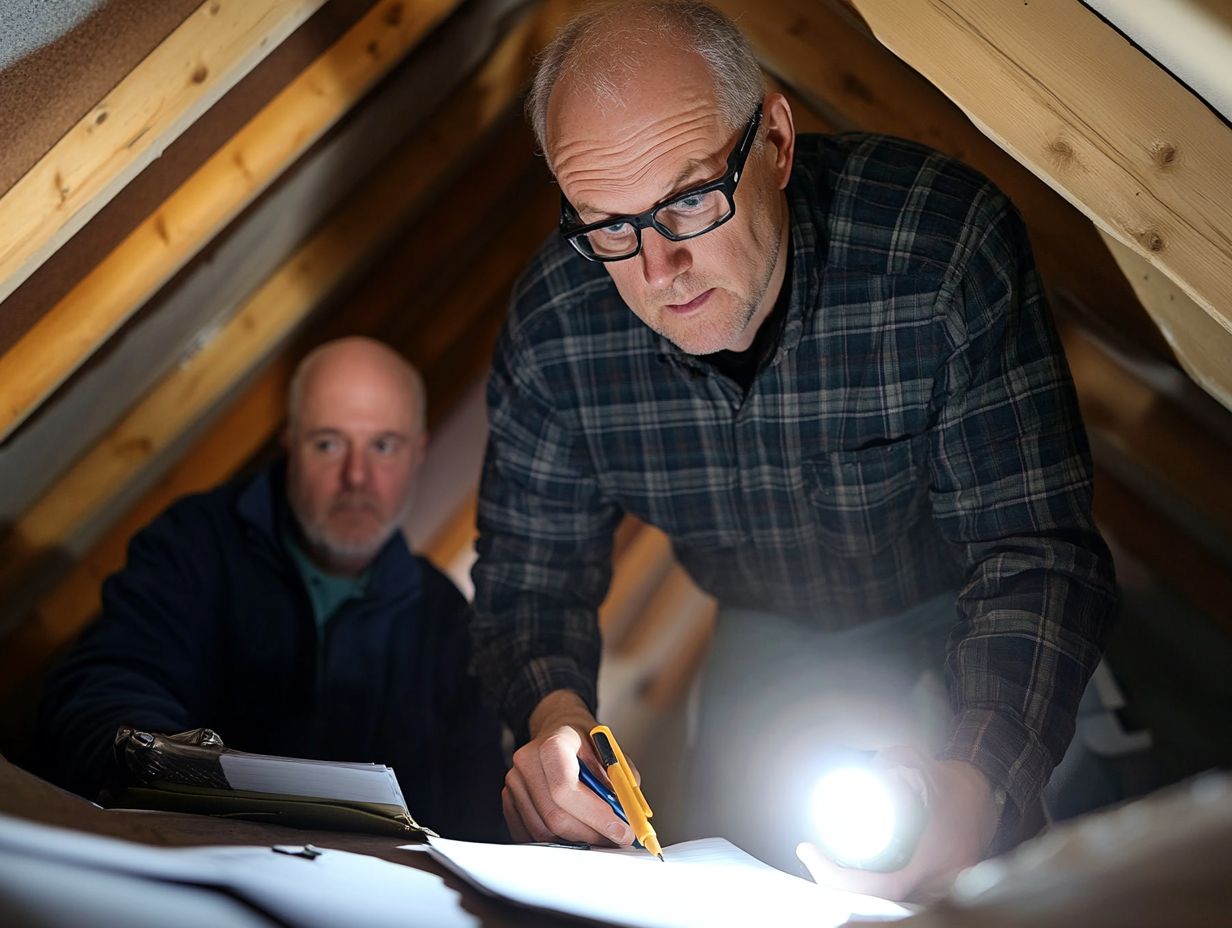
A home inspection is a professional evaluation of a property’s overall condition. It typically occurs before the purchase or sale of a home to identify any potential issues or concerns that may impact the property’s value or safety.
Who typically conducts a home inspection?
A licensed and certified home inspector conducts the inspection. They possess the knowledge and expertise to thoroughly evaluate a property and provide an unbiased report of their findings.
What does the home inspection process entail?
The home inspection process involves a thorough evaluation of the property’s exterior, interior, and major systems like electrical, plumbing, and heating, ventilation, and air conditioning (HVAC). For a comprehensive overview, understanding the process of home inspections includes checking for any potential safety hazards, code violations, or structural issues.
How long does a home inspection take?
The duration of a home inspection varies based on the size and condition of the property. On average, it can take anywhere from 2 to 4 hours to complete.
Do I need to be present during the home inspection?
It’s not required for buyers to attend the home inspection, but it s a great idea. Being there lets buyers ask questions and better understand the property’s condition.
What happens after the home inspection?
The inspector will share a detailed report of their findings. Buyers can then review this report and discuss any worries with their real estate agent.
Based on the report, buyers might want to negotiate new terms or ask the seller for repairs.

